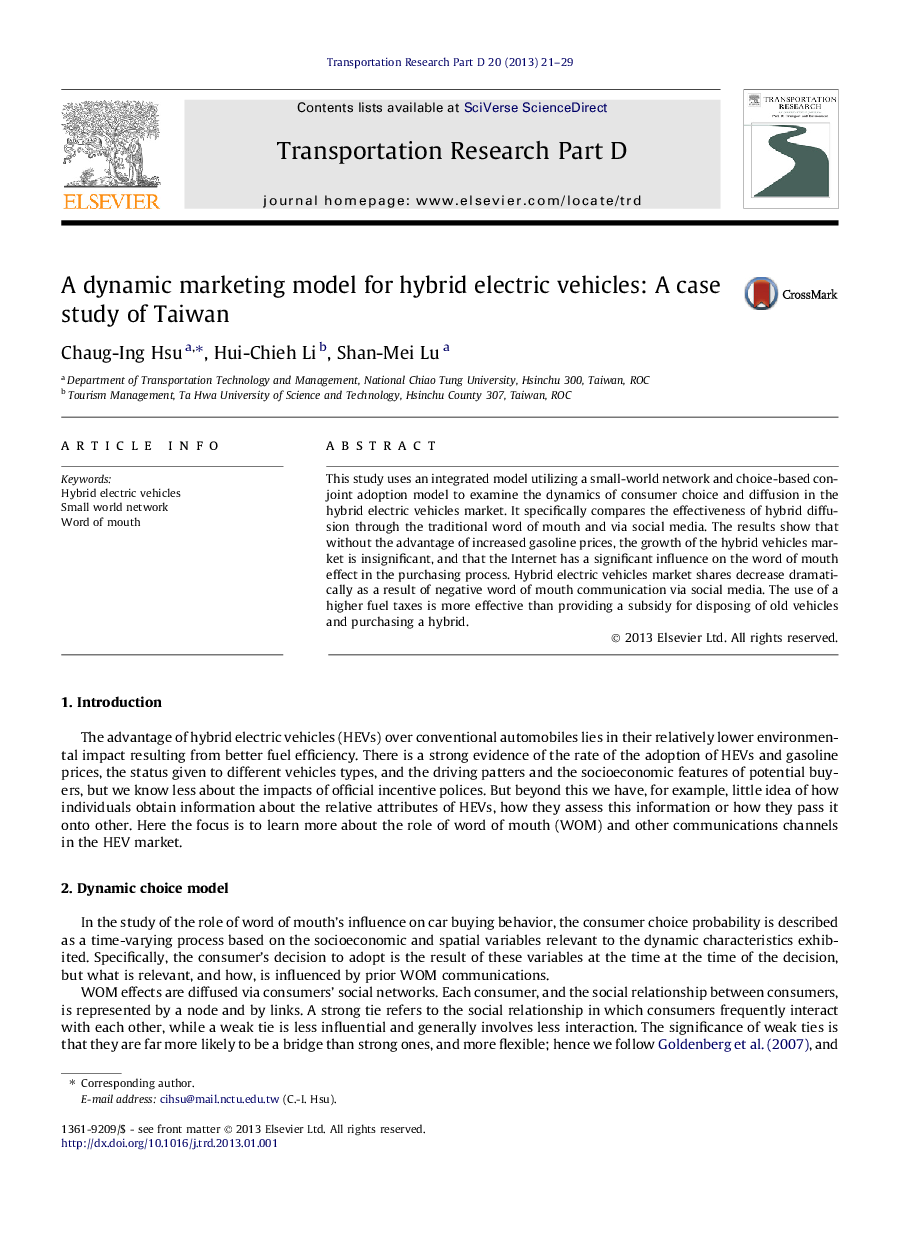| Article ID | Journal | Published Year | Pages | File Type |
|---|---|---|---|---|
| 1065847 | Transportation Research Part D: Transport and Environment | 2013 | 9 Pages |
This study uses an integrated model utilizing a small-world network and choice-based conjoint adoption model to examine the dynamics of consumer choice and diffusion in the hybrid electric vehicles market. It specifically compares the effectiveness of hybrid diffusion through the traditional word of mouth and via social media. The results show that without the advantage of increased gasoline prices, the growth of the hybrid vehicles market is insignificant, and that the Internet has a significant influence on the word of mouth effect in the purchasing process. Hybrid electric vehicles market shares decrease dramatically as a result of negative word of mouth communication via social media. The use of a higher fuel taxes is more effective than providing a subsidy for disposing of old vehicles and purchasing a hybrid.
► Dynamics of hybrid electric vehicle market is modeled utilizing small-world network. ► Gasoline prices impact more on hybrid electric vehicle markets than reduced HEVs prices. ► Social media diffuses harmful information more than social network does.
